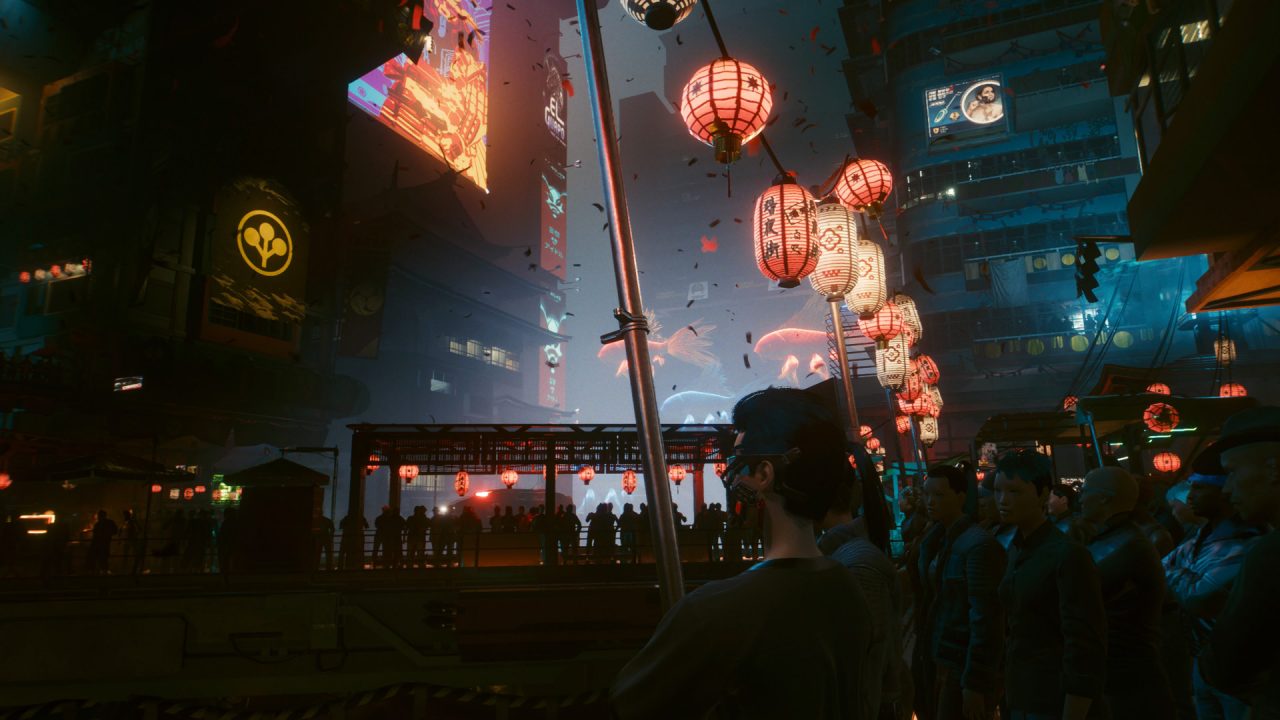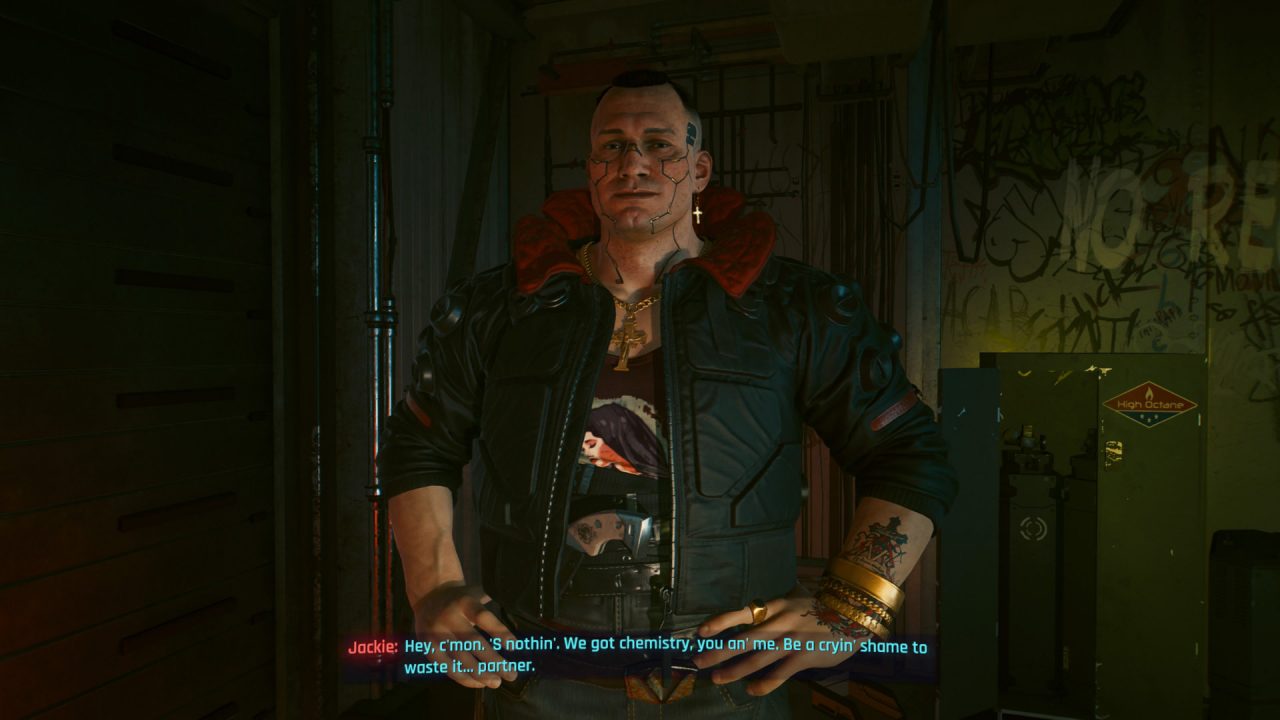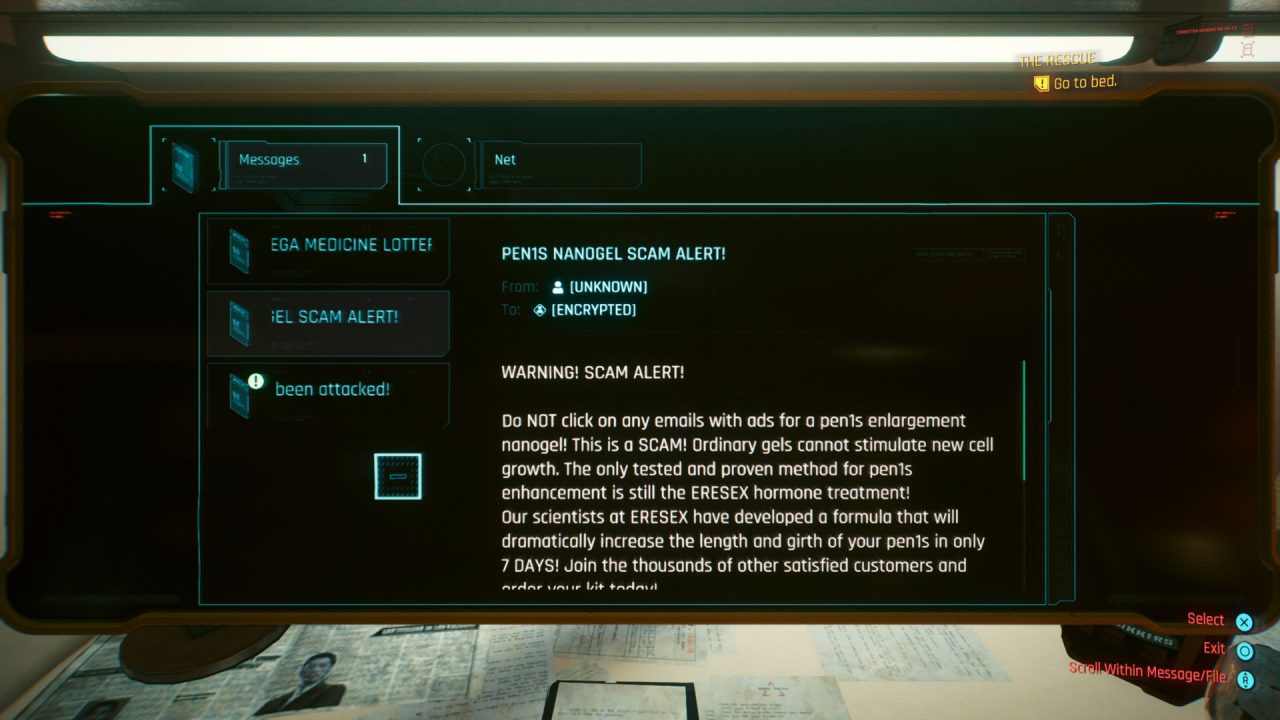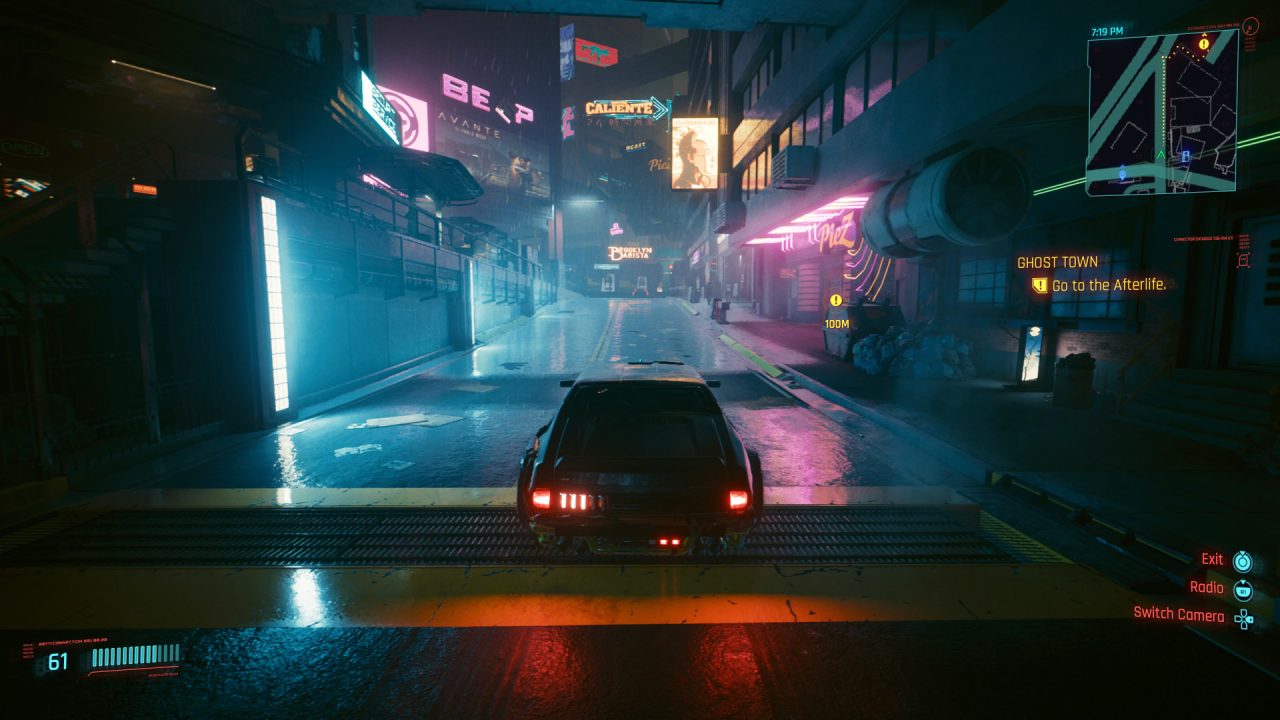Few game launches have flopped as famously as Cyberpunk 2077’s. Borderline unplayable for months following release, Cyberpunk and its myriad bugs fueled countless memes and led Sony to pull it from the PlayStation Store for half a year. The game’s tragic launch, and the crunch surrounding its development, dragged CD Projekt RED’s reputation through the mud and leave it tarnished today.
With patch 1.5, CD Projekt promises that it finally optimized Cyberpunk for next-gen consoles and nixed the glitches that plagued its mechanics, AI, quest design, and other features. With few exceptions, CD Projekt lives up to this promise: today, Cyberpunk feels like a complete, well-designed game – albeit one CD Projekt should have debuted in December 2020. Technical failings linger, but Cyberpunk’s arc reflects one of recent gaming’s strongest comebacks and has resulted in a gem of an action RPG.
Cyberpunk invites you to explore Night City, a glittering supercity rife with corrupt officials, power-hungry corporations, and ambitious gangs. You’re V, a cyber-enhanced mercenary whose appearance, background, and sex you can customize to your heart’s content. An intermediary between you and local crime lords (a “fixer”) tasks you with stealing a mysterious computer chip from the corporation that calls most of the shots in town. After you nab the chip, you learn it’s a one-of-a-kind implant that’s the key to immortality. Unfortunately, you also realize that by stealing it, you inadvertently thrust yourself into the center of a decades-long conflict that could end you and turn Night City’s power structure on its head.
Once it sinks its teeth in, Cyberpunk’s main narrative won’t let go. It’s a fast-paced, 25-hour romp with loads of emotional payoff, riveting writing, and meaningful player choices. From its prologue through its final quest, your dialogue decisions and how you complete quests shape the story and the fate of those in it. Fetch quests and other padding don’t interrupt story beats here, so this tale feels more immersive and fluid than CD Projekt’s other titles. Optional side quests include a few bores, but most center on creative scenarios that’ll pique your interest, like helping police officers manage PTSD, smuggling refugees to safety, and talking autonomous, self-driving taxi cabs off literal cliffs.

Exploring Night City’s open world is also a blast. Its seven distinct districts are packed with treasure, collectibles, and other secrets, and each offers tremendous diversity in architecture, tone, and terrain. Fast travel, brief load times on next-gen consoles, and crisp driving mechanics also make traversing Night City a breeze. If open-world exploration isn’t your schtick, don’t fret; you can pass on almost all of it and carry on with the story.
On the other hand, Cyberpunk’s handling of lore is far less engaging. Datashards litter Night City, and each displays a wall of text detailing a bit of the town’s history, a faction’s backstory, or other information. In a title as fast-paced as this, reading screen after screen of text severs immersion and feels like a chore. You’ll probably make the same call I did and ignore shards entirely, which is a shame given how fascinating this universe is. Cyberpunk also does a poor job of easing you into the slang its characters constantly spew, leaving you confused during its opening hours as you try to piece together the meaning of “gonks,” “chooms,” and other lingo unique to this world.
Even if you ignore datashards, Night City’s residents establish its sense of place. From your early-narrative partner in crime to local gang leaders, many NPCs offer branching narrative paths that put CD Projekt’s talent for writing on full display and give you a glimpse into life in this dystopian future. More than a few characters you meet are memorable and had a lasting impact on me well after I saw the ending credits – Johnny Silverhand more than any others. Vividly acted and voiced by Keanu Reeves, this army veteran turned rock-star steals every scene he’s in and will leave you wondering if he – and not V – is the true protagonist. He also provides most of the edge Cyberpunk prides itself on. Though he and his hypermasculinity occasionally come across as cringeworthy, Johnny is contagiously charismatic and does wonders to set Cyberpunk’s trademark tone.

My only serious gripe with Cyberpunk’s characterization is its representation of transgender people. I commend CD Projekt for letting me create a character whose assigned sex doesn’t match their gender presentation – a first for an RPG of this magnitude. But Night City is comically binary. I didn’t encounter a single transgender character, and dialogue options limit V’s sexual preferences to cisgender males or females. This is a betrayal for a title that relied on transgender imagery in its marketing. Still, I’m thankful Night City’s red-light district doesn’t fetishize trans people or use them as a punchline, as other titles are wont to do.
Cyberpunk’s impactful character progression system may help you look past some of its flaws. Level ups earn V attribute and perk points, which give them more options for progression in the open world, like the ability to pry open locked doors or resolve disputes through dialogue. Perk points bolster V’s combat, hacking, and other practical abilities. You have almost 250 perks that let you min/max everything from V’s stealth prowess to their proficiency with weapons to their hacking and crafting abilities. V also earns skill points – passive bonuses that improve as you interact with the world. Like in The Elder Scrolls, the more you employ a particular playstyle, like hacking enemies or crafting equipment, the more the skills associated with that playstyle level up. Since you can typically resolve quests through force, stealth, or other means, many builds of attributes, perks, and skills are viable.
It’s empowering to shape V to match my playstyle, but it’s also overwhelming. Don’t expect any preset build options or in-game guidance about which perks may be more beneficial for different situations or playstyles. You have hundreds of perks to choose from, so deciding how to invest your points can feel paralyzing. The game also glosses over these complex systems and fails to explain how they interplay, making progression a bit daunting for the average player until they get the skinny online.

Cyberpunk’s combat is much more intuitive than its other systems, and it’s another area where CD Projekt’s talent shines through. Night City’s enormous warehouses, sprawling mansions, and gorgeous high rises teem with menacing machines and hostile mercenaries, and shooting, bludgeoning, and hacking your way through them in first person is loads of fun. Using the game’s responsive controls, V can dodge, parry, or counter any physical attack, and environments are rife with obstacles that provide you with cover to pummel or hack your enemies from afar. You’ll also find plenty of off-the-beaten paths you can sneak through to take foes down stealthily or, if fighting isn’t your forte, bypass them altogether. V controls tightly, and unlike some other CD Projekt titles, battles feel fluid and fast-paced.
For those of us who struggle to outgun nine-year-olds in Halo Infinite, be warned: combat veers toward the frenetic, so don’t be ashamed to play on easy mode. Battles regularly tossed an overwhelming number of enemies, environmental hazards, and projectiles my way, and V offered me little feedback about when they were taking damage and from where. As a result, many encounters left me confused and painfully familiar with the game over screen. There’s an order to Cyberpunk’s combat, but players who don’t excel at first-person shooters may find it a bit chaotic at first.
Speaking of chaotic, Cyberpunk’s technical performance remains its biggest flaw. Even 14 months after release, abrupt crashes permeated my initial hours in Night City. Downloading a recent build update nixed almost all crashes, but any instability is inexcusable at this point. Enemies also sometimes get trapped in doorways or enjoy several seconds of invulnerability to my attacks, and their projectiles routinely bypass walls and other obstacles altogether. Dialogue occasionally repeats itself on a near-infinite loop, and NPCs regularly teleport around the screen. You get the unfathomable picture: this one still needs more time in the development oven.

When the game isn’t glitching, it’s a sight to behold. Night City is often so beautiful that I had to stop playing and admire its dazzling presentation. Environments, weather effects, and character models can hold their own against the best in AAA gaming, and most textures and animations ooze detail and polish. It’s tough to look away from Night City’s stunning skyline; a rainy, late-night drive in Watson; or a sunrise in the badlands. And even during action-packed encounters against dozens of enemies, my framerate never chugged. I’ve had my PS5 since 2020, but Cyberpunk is the first title to make me realize we’re truly in a new generation of console gaming.
Cyberpunk’s audio is equally compelling. Actors fantastically voice all dialogue, and Keanu Reeves isn’t the only one deserving of praise. Even the voice acting behind secondary characters, quest givers, and shopkeepers brims with personality and flair that augments Night City’s storied vibe. Shoutout to Erica Lindbeck for making warm-heated spiritualist Misty Olszewskione one of the city’s most charming residents. The phenomenal electro-pop soundtrack matches the city’s distinctive vibe to a tee and keeps you on edge through bloody encounter after encounter. I won’t soon forget the goosebumps I felt the first time I heard “Night City” while exploring the alcohol-drenched alleys of Jig-Jig street, or how my chest pounded when “Wushu Dolls” played as a boss surprised me by bursting through a nearby door. I only wish you could tune into the in-game radio while on foot, so you aren’t limited to perusing these heart-pumping tracks while driving.
Despite its mismanaged launch, Cyberpunk is a success story. What began in December 2020 as an incomplete, often-unplayable sore spot for CD Projekt has become one of the most immersive RPGs I’ve ever played – one whose visuals, soundtrack, and narrative can go toe to toe with the strongest in the genre. Despite Cyberpunk’s technical headaches, I’ve enjoyed more than 40 hours in it and don’t see myself losing interest in its rich world or side content anytime soon. Cyberpunk’s botched beginnings warranted the scorn players treated it with, but if patch 1.5 is any indication, Night City’s future looks bright.



